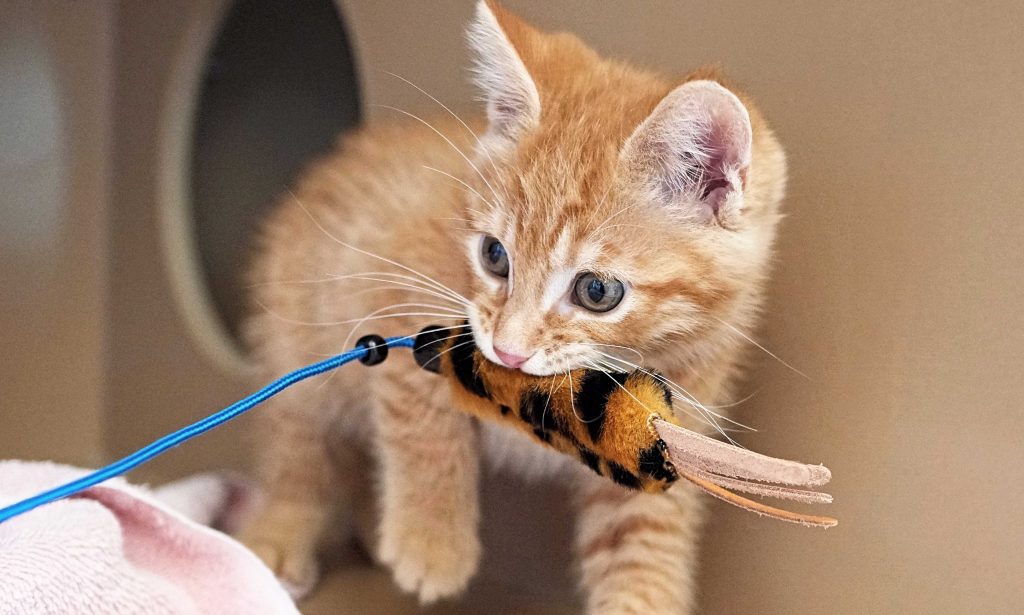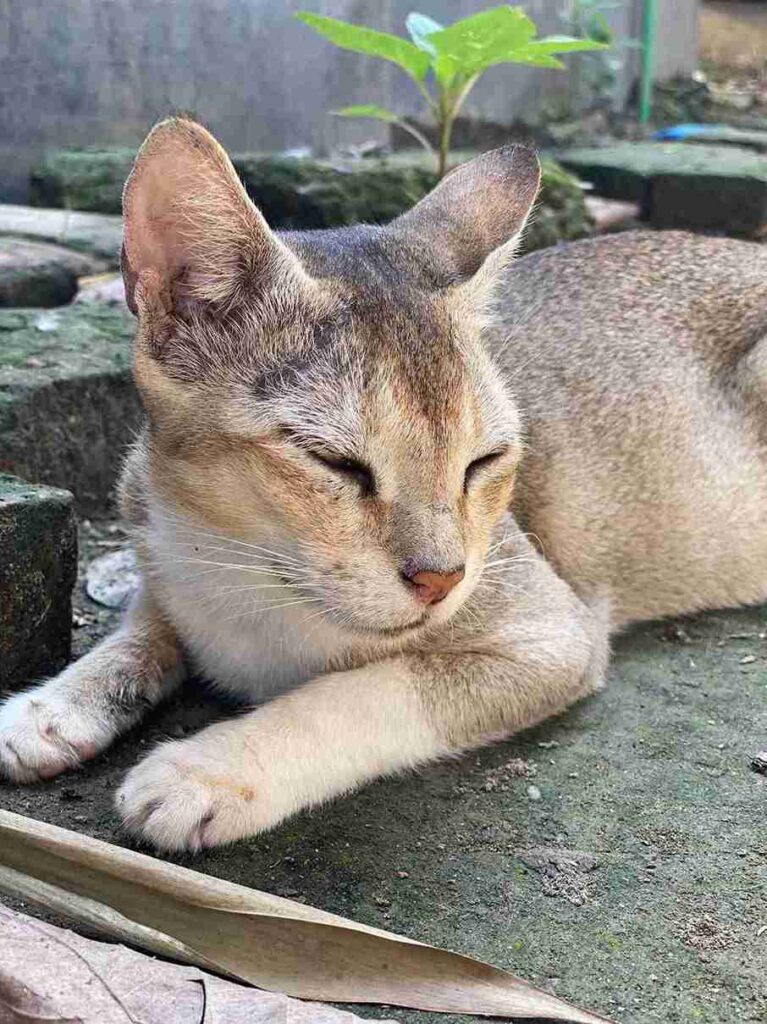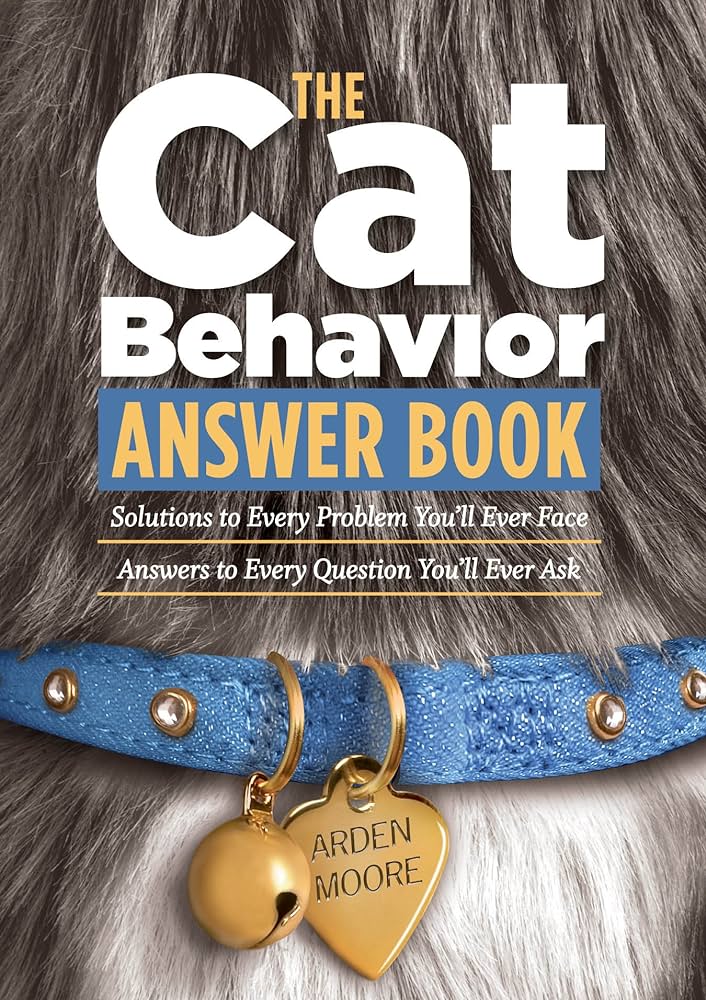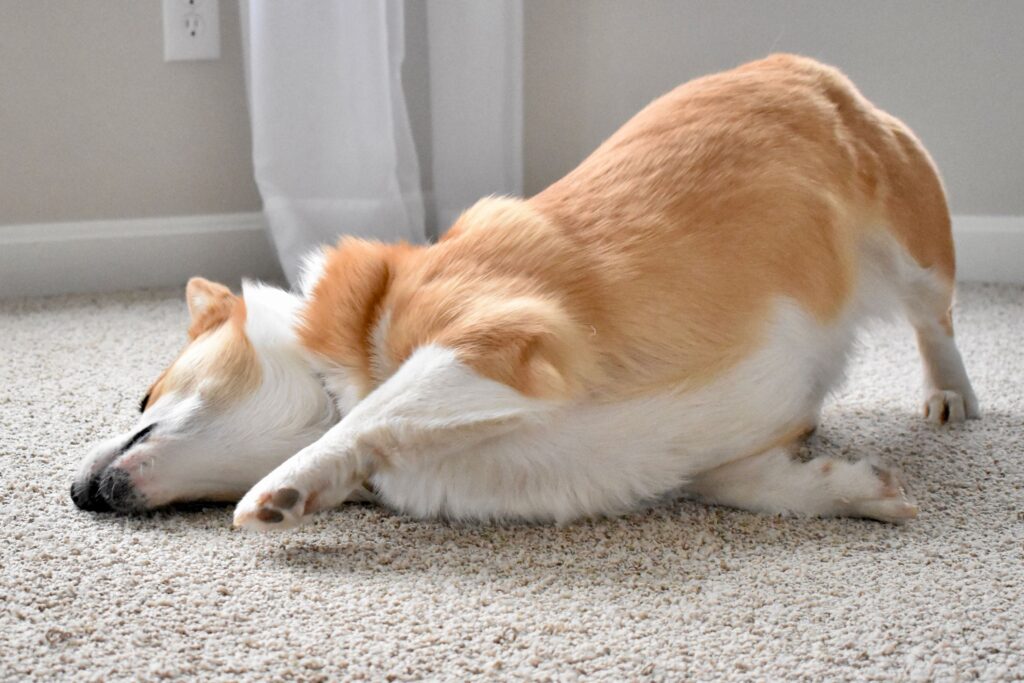Kittens typically calm down around 12-18 months of age. While they are not always hyperactive, they do tend to have bursts of energy throughout the day.
Kittens are renowned for their playful and lively nature, captivating our hearts with their boundless energy. However, many cat owners often wonder when these little bundles of joy will calm down. It is common knowledge that kittens can be quite hyperactive, leaving us amazed at their acrobatic skills and endless enthusiasm.
But is this hyperactivity a permanent state, or do they eventually settle into a more relaxed demeanor? We will explore the timeline for when kittens typically calm down, as well as shed light on whether they are always hyperactive. Understanding these factors can help cat owners prepare for the various stages of their feline companions’ lives and ensure a harmonious household for both humans and feline friends alike. So, let’s dive into the world of kitten energy levels and discover what lies ahead for these adorable little furballs.
Contents
- 1 Why Are Kittens Hyperactive?
- 2 When Do Kittens Calm Down Naturally?
- 3 Factors Affecting Hyperactivity In Kittens
- 4 Managing Hyperactivity In Kittens
- 5 How To Help Kittens Calm Down
- 6 Training Techniques For Calming Kittens
- 7 Identifying Abnormal Hyperactivity In Kittens
- 8 Frequently Asked Questions For When Do Kittens Calm Down? Are They Always As Hyperactive?
- 9 Conclusion
Why Are Kittens Hyperactive?
It is common for kittens to be hyperactive and full of energy. This is because kittens are naturally energetic creatures. They have high levels of energy that they need to burn off to stay healthy and happy. Play and exercise play a crucial role in kitten behavior. Through play, kittens can release their excess energy and engage their natural instincts. Playtime also helps kittens develop important skills such as hunting, pouncing, and socializing. Kitten toys, such as balls, catnip mice, and interactive puzzle toys, can provide mental stimulation and physical activity. It is important to provide kittens with plenty of opportunities for play and exercise to help them calm down and channel their energy in a positive way.
When Do Kittens Calm Down Naturally?
The developmental stages of kittens play a significant role in determining when they naturally calm down. Kittens, like human babies, go through various stages of growth and development. During the first few weeks of life, kittens are completely dependent on their mother for nourishment and care. They are not yet mobile and spend most of their time sleeping and nursing.
As kittens mature, they gradually become more active and playful. Around the age of 4 to 6 weeks, they start exploring their surroundings and engaging in social interactions with their littermates and humans. This period is marked by increased energy and curiosity.
By the time kittens reach 4 to 6 months of age, they start to show signs of calming down. They become more independent and may spend longer periods sleeping or relaxing. However, it’s important to note that each kitten is unique, and some may continue to display hyperactive behavior well into adulthood.
Overall, the typical age range for kittens to exhibit calm behavior is around 4 to 6 months. Nevertheless, it’s crucial to provide them with stimulating environments, toys, and playtime to ensure they grow into well-rounded and content adult cats.
Factors Affecting Hyperactivity In Kittens
Kittens’ level of hyperactivity can vary depending on their breed. Certain breeds, such as Siamese or Bengal cats, are known for their high energy levels and may remain hyperactive for longer periods. Other breeds, such as Ragdolls or Persians, tend to be more laid-back and calm down faster.
Diet plays a crucial role in a kitten’s behavior. Proper nutrition with balanced meals ensures they receive the necessary nutrients for growth and development, which can contribute to a calmer demeanor. Providing a balanced diet that includes high-quality protein and essential fatty acids may help reduce hyperactivity.
The environment in which kittens grow up also has a significant impact on their level of hyperactivity. A stimulating environment with plenty of toys, scratching posts, and climbing structures can help channel their energy in a productive way. Additionally, creating a peaceful and calm environment with designated resting areas can help kittens calm down when needed.

Credit: be.chewy.com
Managing Hyperactivity In Kittens
Kittens are typically known for their hyperactive behavior, but as they grow older, they tend to calm down. However, it is important to manage their hyperactivity to ensure their well-being and the harmony of your home. Providing both mental and physical stimulation is essential to help kittens burn off excess energy and prevent them from becoming overly energetic.
Engaging them in interactive play sessions with toys can help redirect their energy and keep them entertained. Puzzle toys and treat-dispensing toys can mentally stimulate them and prevent boredom. Creating a calm and safe environment is also crucial in managing their hyperactivity. Providing a designated resting area with a comfortable bed and creating a quiet and peaceful atmosphere can help them relax and unwind.
Consultation with a veterinarian is highly recommended to rule out any underlying health issues that may contribute to their hyperactivity. Your veterinarian can recommend appropriate behavioral modifications, training techniques, or even medications if necessary to help manage their energy levels.
How To Help Kittens Calm Down
When it comes to kittens, it’s natural for them to be hyperactive and full of energy. However, just like humans, they do eventually calm down as they grow older. If you’re wondering when kittens calm down, it generally happens around the age of one year. But it’s important to keep in mind that every kitten is different, and some may take longer to mellow out.
To help kittens calm down and expend their energy, playtime is essential. Engage in interactive play sessions with toys that stimulate their hunting instincts, such as fishing pole toys or laser pointers. It’s also important to encourage relaxation and rest by providing cozy and quiet resting areas for them. Creating a routine for feeding and playtime can help establish consistency, which can contribute to their overall calmness.
Training Techniques For Calming Kittens
Kittens, like humans, can be hyperactive, but they do calm down as they grow. To help calm your kitten, it’s important to use positive reinforcement methods. Reward desired behaviors with treats and praise to encourage and reinforce calm behavior. Interactive toys and puzzles can also be beneficial in keeping kittens mentally stimulated and redirecting their energy. These toys promote problem-solving skills and can help reduce hyperactivity. Additionally, incorporating calming exercises and massages into your kitten’s routine can have a soothing effect. Gently stroking your kitten’s fur and giving them soft massages can help them relax. Providing a safe and quiet environment is also essential in promoting calmness. Ensure that your kitten has a cozy bed, a quiet space, and a comfortable environment to rest in. Remember, patience and consistency are key when training your kitten to be calm and well-behaved.
Identifying Abnormal Hyperactivity In Kittens
Kittens’ hyperactivity can be abnormal if it continues without calming down. Understanding when kittens calm down is important to identify abnormal hyperactivity in them.
Identifying Abnormal Hyperactivity In Kittens:
Kittens are known for their playful and energetic nature. However, it is essential to recognize when their hyperactivity becomes excessive and potentially abnormal. This can help you determine if there are underlying health issues that need attention. Some warning signs to watch out for include:
- Frequent and intense bouts of running, jumping, or climbing that seem excessive compared to their age and breed.
- Refusal to settle down, constantly seeking attention, and inability to relax even when tired.
- Aggressive behavior towards humans or other animals, including biting or scratching.
- Difficulty focusing or engaging in normal activities for an extended period.
- Excessive vocalization, such as constant meowing or yowling.
If you observe these warning signs in your kitten, it is important to consider potential underlying health issues. Hyperthyroidism, neurological disorders, and even certain medications can contribute to abnormal hyperactivity. Should you notice any of these signs, it is advisable to seek professional help from a veterinarian. They can provide a proper evaluation, diagnose any potential problems, and recommend appropriate treatments or interventions if necessary.
Frequently Asked Questions For When Do Kittens Calm Down? Are They Always As Hyperactive?
What Age Do Kittens Mellow Out?
Kittens usually start to calm down around 6-12 months of age. As they grow, they become less hyperactive and more relaxed.
How Do You Calm Down A Hyper Kitten?
To calm down a hyper kitten, try providing engaging toys and interactive play sessions. Create a safe and quiet environment for relaxation. Offer a cozy bed or blanket for comfort. Regular feeding schedules and a balanced diet can also contribute to their overall calmness.
Why Is My Kitten Still Hyper After Play?
Kittens may remain hyper after play because they still have plenty of energy. Play is a natural way for them to burn off energy. Giving them toys and engaging in interactive play can help to tire them out. Make sure they have a designated play area to prevent them from becoming too wild.
Why Is My Kitten So Hyper And Biting?
Kittens are naturally hyper and biting is a common behavior. They have lots of energy and need to release it through play. Biting is their way of exploring and learning boundaries. Provide plenty of interactive toys and redirect their biting to appropriate objects.
Conclusion
To sum up, it is important to understand that kittens naturally exhibit high levels of energy and playfulness. While they may appear hyperactive at times, they will eventually calm down as they grow older. Patience and providing them with enriching activities and toys can help redirect their energy.
Remember, each kitten is unique in their development, so it’s essential to give them the time and space they need to adjust. Trust the process and soon enough, your lively bundle of fur will find their inner tranquility.
Katie Lindsey is a passionate cat lover and founder of Cats Solution, a comprehensive resource for all things feline. With a lifelong love for cats and extensive knowledge in their care and behavior, she provides expert advice and solutions to cat owners. Through her website, Katie fosters a supportive community where cat enthusiasts can find guidance and heartwarming stories. A dedicated advocate for animal welfare, Katie also promotes responsible pet ownership and adoption. Join her on this purr-fect journey celebrating the joy of feline companionship.



